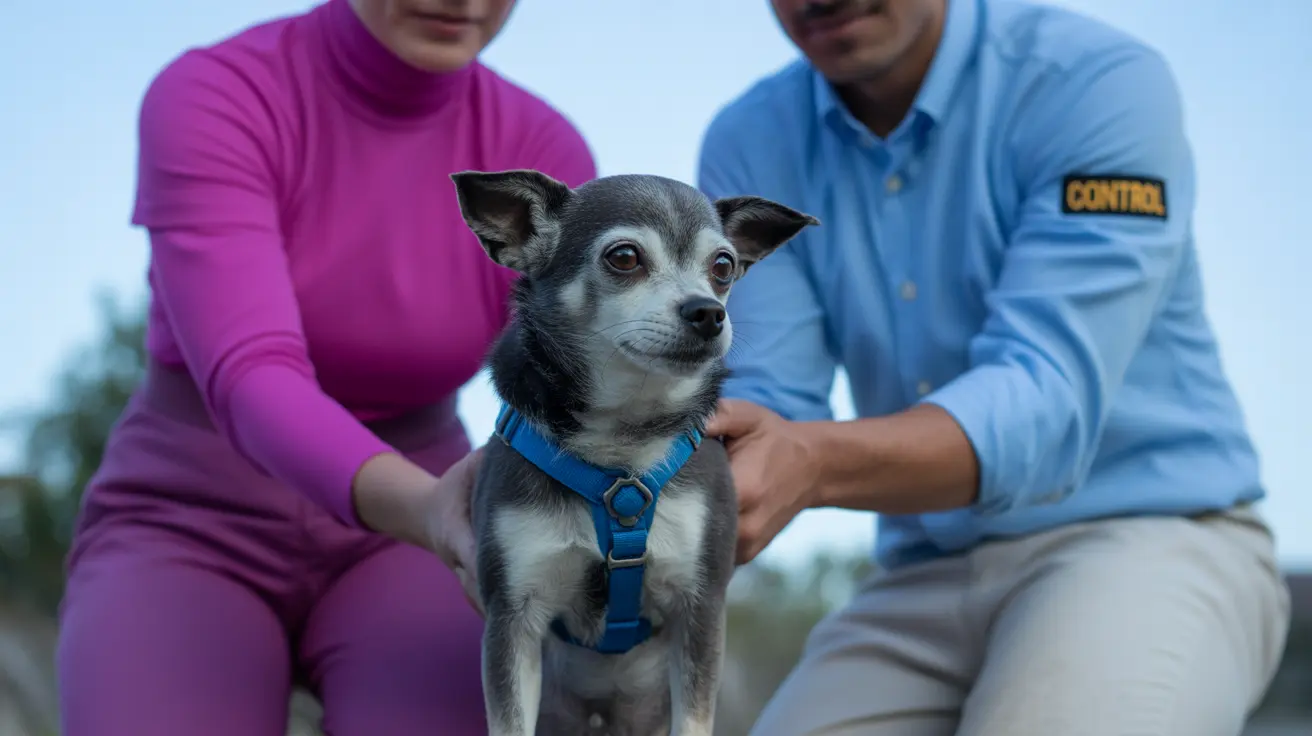The Hidden Benefits of Senior Dog Adoption
Senior dogs offer distinct advantages that make them exceptional pets. Unlike puppies who require extensive house-training and supervision, older dogs typically arrive with established routines and calm temperaments. They've already developed their personalities, so adopters know exactly what kind of companion they're welcoming home.
The predictable nature of senior dogs makes them particularly appealing for households seeking stability. They've moved past the destructive puppy phase and generally require less intensive training. Many senior dogs are already house-trained and understand basic commands, making the transition to a new home smoother for both pet and family.
Caring for Senior Dogs: What Pet Parents Need to Know
Adopting Chihuahua mix seniors like Tina requires understanding their specific needs. Senior dogs benefit from regular veterinary checkups to monitor age-related health changes. Their dietary requirements may differ from younger dogs, often needing specialized nutrition to support joint health and maintain optimal weight.
Exercise needs for older dogs are typically more manageable than those of younger counterparts. Short, regular walks and gentle play sessions often satisfy their physical requirements while preventing overexertion. This makes them excellent matches for seniors or families with less active lifestyles.
Best Dogs for Seniors: The Perfect Match
The concept of "Seniors for Seniors" programs has gained popularity at Florida animal shelters and across the nation. These initiatives recognize that senior dogs often complement older adults perfectly. Both prefer quieter environments, established routines, and meaningful companionship over high-energy activities.
Senior pets bring emotional benefits that extend beyond companionship. They provide purpose and routine for their adopters while requiring less intensive care than younger animals. This mutual benefit creates lasting bonds between senior pets and their adoptive families.
Senior Pet Adoption Support and Resources
Organizations like the Lynn Haven Animal Shelter understand the unique challenges of senior pet placement. Many shelters provide comprehensive senior dog medical care before adoption, including thorough health evaluations, vaccinations, and necessary medical treatments. Some facilities offer post-adoption support to ensure successful transitions.
Animal shelter pet spotlight programs, like Tina's television appearance, play crucial roles in raising awareness about senior pet adoption. These initiatives help combat misconceptions about older dogs while showcasing their wonderful qualities to potential adopters.
Overcoming Adoption Barriers
Despite their many advantages, shelter adoption rates for senior pets remain lower than those for younger animals. Potential adopters often worry about shortened lifespans or increased medical costs. However, the love and gratitude that senior dogs provide often far outweigh these concerns.
Many senior dogs adapt quickly to new homes, grateful for the comfort and security they've found. Their appreciation for care and attention creates deeply rewarding relationships that enrich the lives of their adoptive families immeasurably.
Making a Difference Through Senior Dog Adoption
Tina's story represents thousands of senior dogs waiting in shelters nationwide. By choosing to adopt older dogs, families not only gain wonderful companions but also make space for other animals in need. This ripple effect amplifies the positive impact of each adoption decision.
The decision to adopt a senior dog like Tina offers the profound satisfaction of providing a deserving animal with comfort and love during their golden years. These relationships, though potentially shorter than those with younger pets, often prove among the most meaningful and rewarding experiences pet parents can have.
Frequently Asked Questions
What are the benefits of adopting a senior dog like Tina from a shelter?
Senior dogs often have calm temperaments, are usually house-trained, and bring predictable companionship, making them excellent pets for many households. They also offer the rewarding experience of giving an older pet a loving home in their golden years.
How does adopting a senior dog differ from adopting a puppy in terms of care and training?
Senior dogs typically require less training and supervision since they are often already trained, have established routines, and exhibit calmer behavior compared to puppies who need more time, attention, and house-breaking.
What medical and financial support do shelters like Lynn Haven provide for senior dog adopters?
Shelters provide thorough medical exams, vaccinations, spay/neuter surgeries, and sometimes offer financial support or post-adoption resources for senior pets to ensure their health and easing adoption costs.
Why are senior pets less frequently adopted, and how do shelters promote their adoption?
Senior pets like Tina tend to stay longer in shelters due to concerns about health and lifespan, but shelters combat this by highlighting senior pets through media spotlights, community events, and education to raise awareness and improve adoption rates.
What makes senior dogs ideal companions for older adults or people with a quieter lifestyle?
Senior dogs offer predictable temperaments, lower energy needs, and a calm presence, fitting well with older adults or those seeking a less active pet. Programs like "Seniors for Seniors" specifically match senior dogs with older adopters to enhance mutual benefits.






